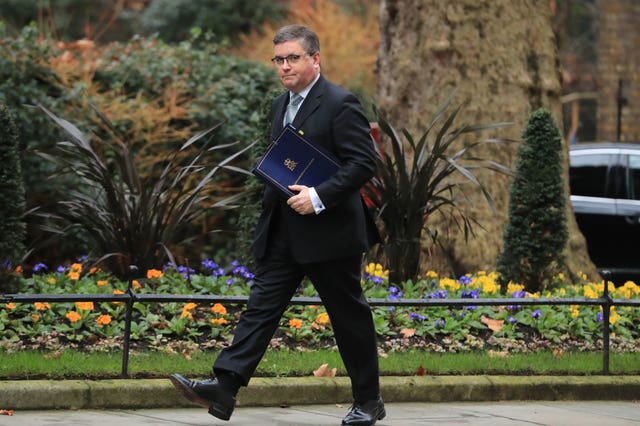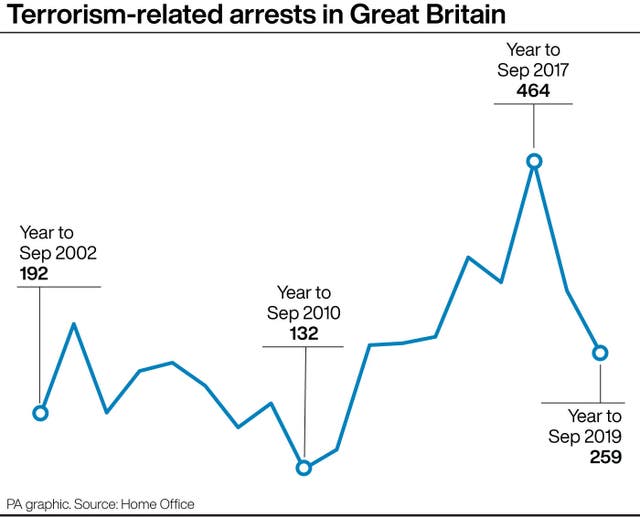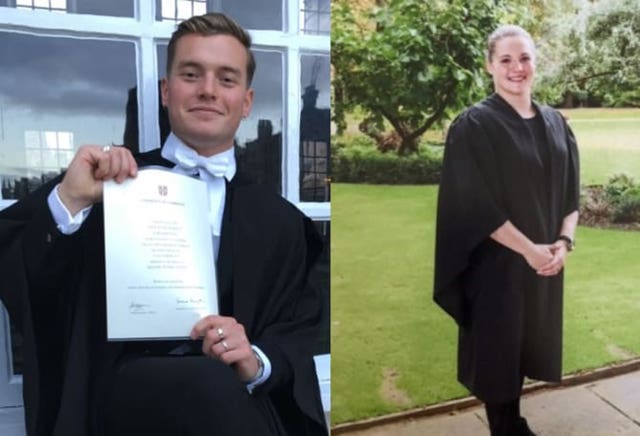
The Justice Secretary has defended plans to make terrorists take a lie detector test to prove they have reformed and are not planning to carry out another attack.
Plans to introduce “polygraph testing” were announced by the Government as part of a wave of measures being described as a “major overhaul” in the way terrorists are punished and monitored – including tougher sentences to see them locked up for longer – in the wake of the London Bridge attack.
When questions were raised over their accuracy, Robert Buckland insisted lie detectors were important to identify “sleepers” and that they will not be the only measure used.
He told Sky News: “You can get people who are in effect sleepers for many years and then suddenly back come the hatreds and the prejudices and we see atrocities like the one we did at Fishmongers’ Hall.”

Pressed on accuracy of the tests being as low as 60%, Mr Buckland said: “I’m not pretending on their own, polygraphs, lie detectors, are the be-all-and-end-all, which is why what we are also doing is doubling the number of specialised counter-terrorism probation officers… improving training, getting more psychologists in there, specialist imams as well will be working with these people.”
Meanwhile he told BBC Breakfast the proposal was “not a new concept”, with detectors introduced about seven years ago to assess the risk posed to the public by sex offenders.
He insisted it was a “sensible measure in order to help maximise the understanding of the risks that some of these prisoners pose to society” which would not form part of a criminal investigation or evidence used in court.

Some experts have questioned the credibility of polygraph tests, claiming there are ways of cheating to manipulate the results.
The British Psychological Society told the PA news agency polygraph testing had “inherent weaknesses” like all procedures, and error rates in deception detection “can be high”.
A spokeswoman said: “Error rates in polygraphic deception detection can be high and the procedure should not be ascribed a special status.
“Based on the available psychological evidence we must not deceive ourselves into thinking that there will ever be an error-free way of detecting deception.”
Professor Aldert Vrij, a senior lecturer in psychology at the University of Portsmouth who has written extensively on the subject, told the BBC in 2018: “It does not measure deception, which is the core problem.”
Others have suggested because taking the test is a stressful experience this could provide the wrong results by indicating an innocent person is lying.
The FBI reportedly asks new staff to submit to a test when they join but according to the American Psychological Association “there is little evidence that polygraph tests can accurately detect lies”.
More details of The Counter Terrorism (Sentencing and Release) Bill were released less than two months after convicted terrorist Usman Khan embarked on a killing spree armed with two knives and wearing a fake suicide vest after attending a prisoner rehabilitation programme while out on licence halfway through a 16-year jail sentence.
Saskia Jones and Jack Merritt were both killed and Khan was shot dead by police.
Today, we’re announcing a counter-terror package including tougher sentences for offenders, an overhaul of probation, and a £90m increase in funding for CT Police. We are also investing in support for victims of terrorism. pic.twitter.com/kkdR9OePpx
— Home Office (@ukhomeoffice) January 21, 2020
Describing the move as a “major shift” in the UK’s approach to the sentencing and management of terrorist offenders, the announcement from the Home Office and the Ministry of Justice (MoJ) also promised to:
– Force dangerous terrorists who receive extended determinate sentences to serve the whole time behind bars.
– Ensure those convicted of serious offences such as preparing acts of terrorism or directing a terrorist organisation would have to spend a minimum of 14 years in jail.
– Scrap early release from jail for those classed as dangerous and handed extended determinate sentences – in which criminals have to spend longer on licence after prison.
– Double the number of counter-terrorism probation officers.
– Make more places available in probation hostels so authorities can monitor terrorists in the weeks after they are released from prison.
– Increase counter-terrorism policing funding by £90 million year on year for the coming year to £906 million.
– Give an immediate £500,000 cash injection for support for victims of terrorism and a review of services available.
– Provide more specialist psychologists and trained imams who help to assess the risk of radicalised offenders.
– Offer more training for frontline prison and probation staff to identify and challenge extremism behind bars and on licence.

Terrorists deemed not to be a risk would have to serve two-thirds of their sentence before the Parole Board could consider them for release.
Jonathan Hall QC, the independent reviewer of terrorism legislation, will also review the way in which agencies like the police, probation and security services investigate and monitor terrorists – known as Multi Agency Public Protection Arrangements (Mappa).
Shadow home secretary Diane Abbott described the announcement of a security overhaul as “an admission of failure” by the Government.
While Liberal Democrat home affairs spokeswoman Christine Jardine said judges already had the power to lock up terrorists for life while polygraphs were “not accurate or reliable enough” for such critical decisions.
In the year to the end of September, there were 44 convictions for terrorism offences, with 17 offenders being sent to jail for between four and 10 years, the Government said.
Five were jailed for 10 years or more and one was handed a life sentence.
Around 245 convicted terrorists were freed from jail between 2012 and 2019.


Comments: Our rules
We want our comments to be a lively and valuable part of our community - a place where readers can debate and engage with the most important local issues. The ability to comment on our stories is a privilege, not a right, however, and that privilege may be withdrawn if it is abused or misused.
Please report any comments that break our rules.
Read the rules hereLast Updated:
Report this comment Cancel